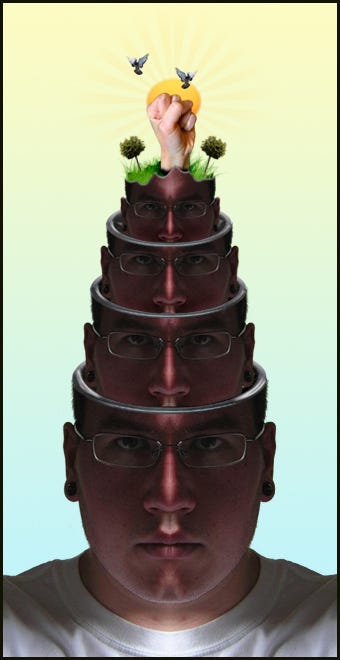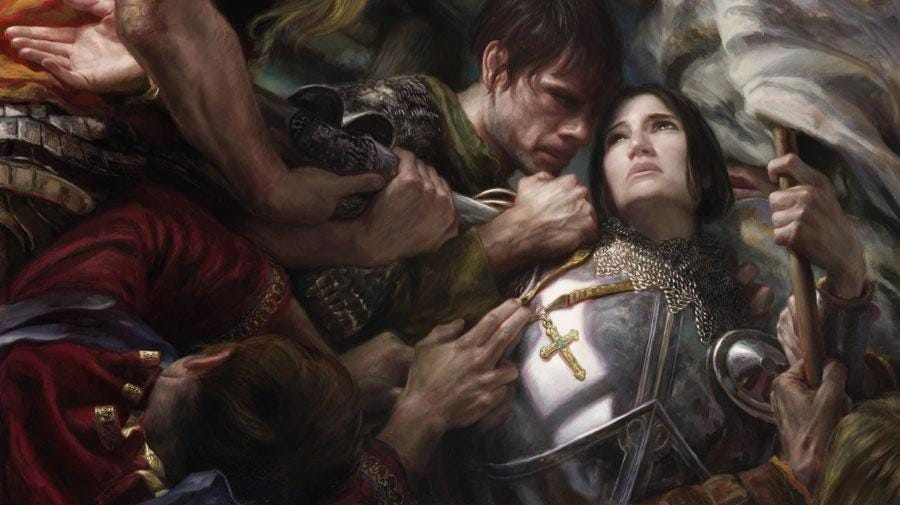
“He who innovates will have for his enemies all those who are well off under the existing order of things, and only lukewarm supporters in those who might be better off under the new… partly from the incredulity of mankind, who will never admit the merit of anything new, until they have seen it proved by the event.”
Niccolò Machiavelli
Many changemakers mistakenly expect their coworkers to embrace their innovations, ideas, and suggestions for change with open arms. We are creatures of habit, and we become accustomed to the status quo. The status quo, by its very nature, resists change. Change means a shift in power, a shift in resource allocation, and a shift in compensation. Naturally, people resist.
George Bernard Shaw said, “The reasonable man adapts himself to the world: the unreasonable one persists in trying to adapt the world to himself. Therefore, all progress depends on the unreasonable man.” In this Thursday Thought, we point out that it provoking change doesn’t always end well for the unreasonable man, ahem, or in this case, woman. The intention is to ensure the changemaker is prepared mentally for the resistance she will encounter. It is a rite of passage. It is a sign of progress.

Before we explore that, let’s see how the phenomena of a natural pecking order appears to be part of natural social systems. Norwegian zoologist and psychologist Thorleif Schjelderup-Ebbe described the pecking order of chickens in his PhD dissertation in 1921. He noted that pecking was a measure of establishing dominance and leadership order amongst hens. This social hierarchy established which hens would get food first, while the others waited in line.
Dr Marian Wong conducted another fascinating study that explored the social behaviours of the coral-dwelling goby fish, These fish live in close-knit social groups amongst the coral reefs just off Queensland, Australia.
The Price of Conformity

“Collective fear stimulates herd instinct, and tends to produce ferocity toward those who are not regarded as members of the herd.” ― Bertrand Russell
Goby tribes defend their small patch of coral from predators and other gobies. Gobies work together with the clear understanding that they must obey social norms or risk being evicted from their patch. Eviction signalled certain death. In Wong’s words, “Once they’re outside the coral, they’re basically eaten. Stay in the coral, you’re safe. Out? Eaten. So it’s pretty serious. It’s a credible threat. The coral is safety. The group is. But there’s no such thing for fish as a free lunch. They have to pay to stay.”
Wong noticed how the fish would often line up in a very precise pattern. In goby fish societies, there is a dominant male and female followed by several females. When the group “lined up” they did so by decreasing size. But why?
The fish were lining up in order of decreasing size to show that they were respecting social hierarchy and not threatening the dominance of the next biggest fish.
(0.9) 3 is the Magic Number?
Remarkably, they remained exactly 0.93 the size of the next fish in the hierarchy. It is important to note that size matters greatly to goby. The dominant goby consider unrestrained and unmonitored growth as a threat to their status. Smaller fish go to lengths to stay within the social pecking order. Despite growing more rapidly than larger fish, they regulate their eating to regulate their growth. By imposing a personal limit on their growth, they obey the social hierarchy.
This behaviour is not unique to animals. Remaining within social guidelines dates back to the dawn of humanity. Back then, disobedience and non-adherence to group norms meant ejection from the tribe. Ejection from the tribe meant battling the elements alone. Like the goby fish, battling the elements alone resulted in death.
Corporate Conformity

Nowadays we need not worry about being eaten if others eject us from our tribe, but social isolation is a real psychological threat.
Corporate conformity presents a real challenge for the changemaker: Do I gainsay? Do I call out that the emperor is naked? Do I emphasise the obvious danger others ignore? Being the corporate whistleblower takes huge bravery. The history of whistleblowers does not bode well for the changemaker. Edward Snowden, Kathy Bolkovac and many others ran the gauntlet and paid a huge personal price for doing what was right. Even when the whistleblower saves the day, she can still fall victim to a broken system that favours the status quo. This brings us to Joan of Arc (Jeanne D’Arc).
No Good Deed Goes Unpunished

In 1429, Joan of Arc heard God’s voice telling her to fight to save France during the Hundred Years’ War. This is akin to the inkling every changemaker feels when they feel obliged to instigate change. Amazingly, Joan convinced Charles VII to let her lead the French army against England, turning the course of the war in France’s favor and leading to a brief truce.
After the truce, the Duke of Burgundy captured and sold her to the English, who burned her at the stake for heresy. Joan of Arc changed the fate of the war, she saved the lives of countless French citizens. Her reward? Imprisonment, torture and death.
Is it any wonder so few leaders change the course of their organisations? Is it any wonder so few changemakers stay in one organisation long enough to make a lasting change? Leaders don’t get fired for being average, but they do get fired when their experiments don’t work out. Genuine change requires organisational leadership, the board, the management and the people to change in unison. You can’t change business models until you change mental models.
THANKS FOR READING